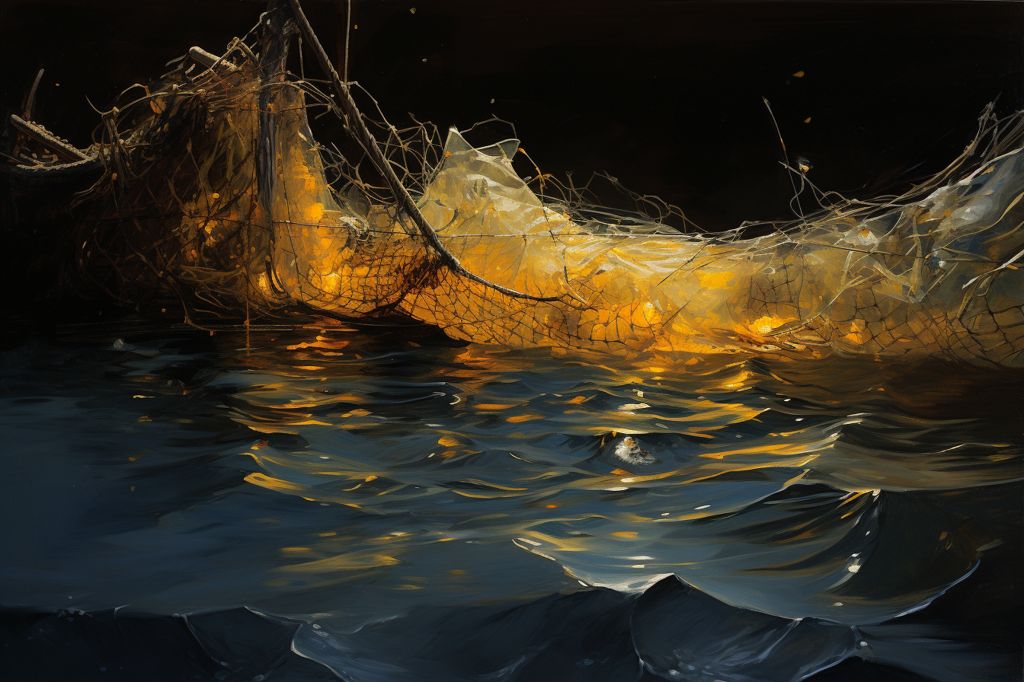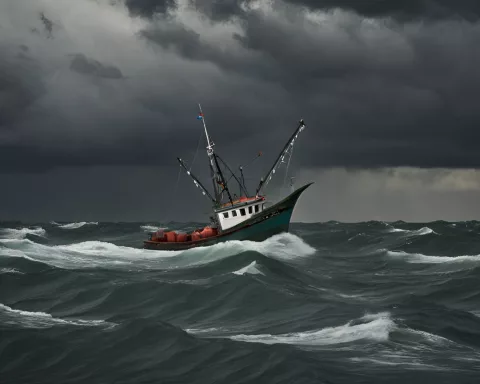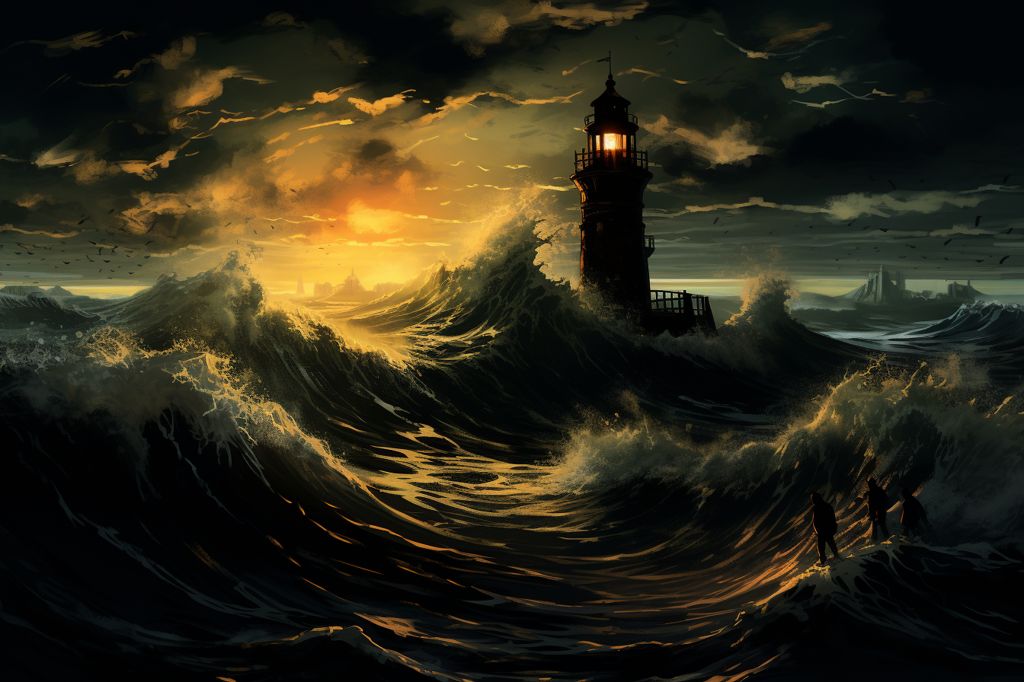The South African Department of Forestry, Fisheries and the Environment recently granted French energy company TotalEnergies permission to conduct offshore drilling for natural gas and oil off the Cape Coast. The decision is contentious, with critics concerned about the environmental risks, including noise and light pollution and oil spills, as well as potential impacts on local communities that depend on fishing and tourism. Supporters argue that the project could yield economic benefits and address the country’s energy crisis. The ongoing debate highlights the complexity of balancing energy development, environmental preservation, and social dynamics.
A Contentious Decision: TotalEnergies’ Offshore Drilling Permit
Recently, the South African Department of Forestry, Fisheries and the Environment granted French energy company TotalEnergies permission to conduct offshore drilling for natural gas and oil. The decision has sparked both excitement and concern, following a passionate appeal by numerous individuals and advocacy groups. This article examines the details of this controversial decision and the potential implications for the environment, economy, and local communities.
TotalEnergies was given the go-ahead for drilling in Block 5/6/7, a zone covering approximately 10,000 square kilometres off the Cape Coast, situated between Cape Town and Cape Agulhas. The project site is between 60 to 170 kilometres away from the nearest coastline point, and the water depths range from 700 to 3,200 metres. The company plans to drill up to five exploration wells in this area.
The project faced opposition from various sources, with critics voicing concerns about marine noise, oil spills, climate change, and what they deemed as insufficient public consultation. However, Environment Minister Barbara Creecy, acting as the appellate authority, rejected the appeal in an extensive 144-page ruling on 24 September. She stated that the impacts of noise and light pollution have been “adequately assessed and mitigated to ensure low impacts on the receiving environment.”
Balancing Energy, Economy, and Environment: Arguments For and Against Offshore Drilling
The approval of TotalEnergies’ offshore drilling project has ignited a debate surrounding the fragile equilibrium between energy demands, economic development, and environmental conservation. Supporters contend that the project could yield considerable economic benefits and job opportunities, assisting South Africa in addressing its increasing energy needs. The nation has been struggling with an energy crisis, characterized by regular power outages and a strong dependence on coal. The discovery of new natural gas reserves could potentially ease some of these issues while promoting a shift towards cleaner energy sources.
Conversely, critics maintain that the environmental risks linked to offshore drilling are too great. The possibility of oil spills presents a severe threat to the abundant marine life found in the coastal waters, including various species of whales, dolphins, seabirds, and fish. Moreover, the drilling process generates significant amounts of noise and light pollution, which can negatively affect marine ecosystems and the wider environment.
Social and Cultural Concerns: Impacts on Local Communities
Beyond the ecological concerns, opponents are also apprehensive about the social and cultural consequences of the project. The Cape Coast hosts dynamic communities that depend on fishing and tourism for their livelihoods. An oil spill, or even the perception of environmental damage, could have a catastrophic impact on these industries and the local economy.
The debate encompassing TotalEnergies’ offshore drilling project encapsulates the intricate interplay between energy development, environmental preservation, and social dynamics. It brings up crucial questions regarding the role of public consultations and stakeholder engagement in shaping such decisions and the extent to which economic imperatives should influence environmental policy.
As South Africa deals with its energy crisis, the decision to allow offshore drilling off the Cape Coast will continue to provoke discussion and evoke contrasting opinions. With high stakes and far-reaching consequences, the ongoing discourse highlights the complex nature of balancing energy requirements with the protection of the environment and the welfare of local communities.
Looking Ahead: Lessons from the TotalEnergies Drilling Project
The TotalEnergies drilling project will undoubtedly serve as an important case study in the years to come. It is vital that the lessons learned from this decision inform future policy choices and contribute to a more sustainable and inclusive approach to energy development in South Africa and beyond.
1. What is TotalEnergies’ offshore drilling project off South Africa’s Cape Coast?
TotalEnergies has been granted permission by the South African Department of Forestry, Fisheries and the Environment to conduct offshore drilling for natural gas and oil in Block 5/6/7 off the Cape Coast. The project site covers approximately 10,000 square kilometres and is situated between Cape Town and Cape Agulhas.
2. What are the environmental risks associated with the TotalEnergies offshore drilling project?
Critics of the project express concerns about the environmental risks, including noise and light pollution and oil spills, that could negatively impact marine ecosystems and the wider environment. Oil spills present a severe threat to the abundant marine life found in the coastal waters, including various species of whales, dolphins, seabirds, and fish.
3. What are the potential economic benefits of the TotalEnergies offshore drilling project?
Supporters of the project contend that it could yield considerable economic benefits and job opportunities, assisting South Africa in addressing its increasing energy needs. The discovery of new natural gas reserves could potentially ease some of these issues while promoting a shift towards cleaner energy sources.
4. What are the social and cultural concerns surrounding the TotalEnergies offshore drilling project?
Opponents are also apprehensive about the social and cultural consequences of the project. The Cape Coast hosts dynamic communities that depend on fishing and tourism for their livelihoods. An oil spill, or even the perception of environmental damage, could have a catastrophic impact on these industries and the local economy.
5. What was the outcome of the appeal against the TotalEnergies offshore drilling project?
Environment Minister Barbara Creecy, acting as the appellate authority, rejected the appeal against the TotalEnergies offshore drilling project in an extensive 144-page ruling on 24 September. She stated that the impacts of noise and light pollution have been “adequately assessed and mitigated to ensure low impacts on the receiving environment.”
6. What is the role of public consultations and stakeholder engagement in shaping decisions like the TotalEnergies offshore drilling project?
The debate surrounding the TotalEnergies offshore drilling project brings up crucial questions regarding the role of public consultations and stakeholder engagement in shaping such decisions and the extent to which economic imperatives should influence environmental policy.
7. What can we learn from the TotalEnergies drilling project?
The TotalEnergies drilling project will serve as an important case study in the years to come. It is vital that the lessons learned from this decision inform future policy choices and contribute to a more sustainable and inclusive approach to energy development in South Africa and beyond.
8. How does the TotalEnergies offshore drilling project highlight the complexity of balancing energy, economy, and environment?
The ongoing debate surrounding the TotalEnergies offshore drilling project highlights the complexity of balancing energy development, environmental preservation, and social dynamics. With high stakes and far-reaching consequences, the decision to allow offshore drilling off the Cape Coast will continue to provoke discussion and evoke contrasting opinions.









